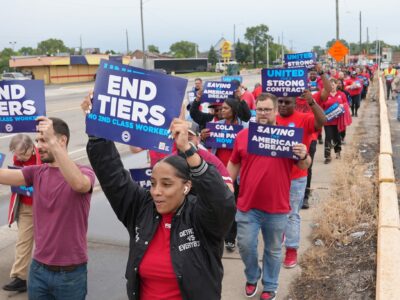Changes to Retirement Plans Highlights:
The Latest on Changes to Retirement Plans:

Retaining Employment Records Can Be Crucial
Everyone Makes Mistakes It’s a fact of life: everyone makes mistakes—including retirement plan administrators. Mistakes are especially likely to occur when employers change recordkeepers or systems of keeping records. Retaining your own records of employment can mean that those mistakes can be corrected. Changes for Federal Workers The recent announcement from the Office of Personnel […]

Forbes: One Easy Way To Boost Your 401(k) Account, Starting Now
“Participants who withdraw plan funds to cover non-retirement expenses,” notes the Pension Rights Center, “no matter how justified, are shortchanging their future. Every dollar withdrawn will no longer be in the account where it can grow tax deferred. That lost principle, combined with the loss of potential interest and investment gains over what could be […]

Pensions & Investments: Is renewed interest in DB plans real, or just a pipe dream?
The news around corporate defined benefit plans over the past couple decades has been bleak, with companies expeditiously freezing or terminating plans. But with some help out of Washington, experts say there’s an opportunity for employers to reopen plans still on their books or provide their workers with guaranteed income in retirement.

Uptick in Withdrawals Exposes the Inadequacy of Do-It-Yourself Retirement
By David Brandolph For decades, employers have been steadily ridding themselves of the responsibility of funding and making payments to traditional defined benefit pensions in favor of 401(k)-type defined contribution plans. But are these individual account retirement savings plans providing sufficient retirement income for most Americans? For millions of workers, that answer is “No.” A […]

Investment News: Employers racing to offload pensions to insurers
Among companies that still have active defined-benefit plans on their books, 89% are planning to offload their pensions to insurance companies using a strategy called pension risk transfer, which puts workers and retirees into group annuities.

Bloomberg Law: UAW Aims to Restore Retiree Benefits Given Up in 2008 Crisis
At the center of a historic UAW strike against all three major US automakers is an effort against long odds to reclaim retirement benefits workers conceded decades ago as manufacturers teetered on the brink of collapse. United Auto Worker union activists say they want back the guaranteed lifetime pension payments and retiree medical care they […]



